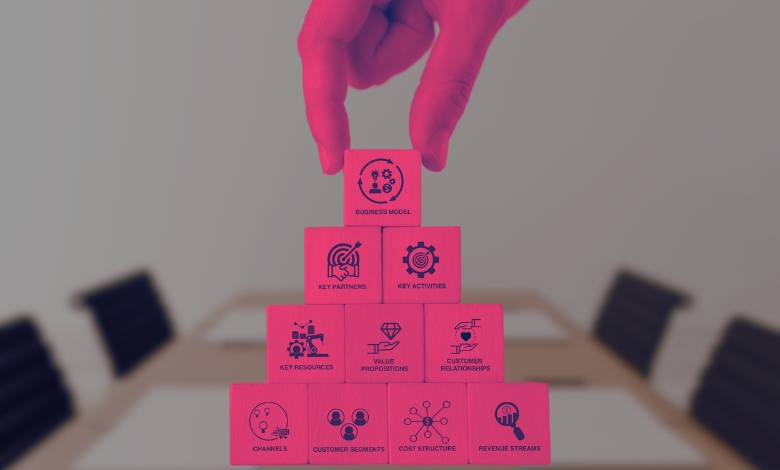Discover why there is a growing demand for security engineers as cyber threats rise and businesses prioritize cybersecurity like never before.
Ten years ago, cybersecurity was pretty much a problem for big businesses. Now it’s a problem every individual needs to think about. Data breaches are all over the news, small businesses are just as vulnerable as big businesses, and even individuals are vulnerable on a daily basis. As a result, there’s been a growing demand for security engineers.
Everyone thinks it’s just because cyber threats keep increasing, and that’s true, but only half the truth. Having been in the tech industry, I’ve watched cybersecurity go from an afterthought to a top priority. This shift has also influenced funding strategies, as businesses now allocate more resources toward cybersecurity to address these growing threats. So why is there a growing demand for security engineers? The real reasons go deeper, and in some cases, are somewhat disturbing. But the sooner we know the issues, the sooner we can start fixing them. Here are five hidden cyber threats that explain why cybersecurity is more important than ever.
Article Breakdown
1. The Dark Side of IoT: Billions of Devices, Billions of Vulnerabilities
Do you recall when smart home devices were a novelty? It was thrilling, being able to manage your lights, thermostat, or even your front door using only your phone. But the following is the downside nobody really discusses: every smart device you introduce into your home is another means for hackers to gain entry.
The Internet of Things (IoT) has grown by leaps and bounds. Billions of devices, from smart fridges to industry sensors, are all connected online. The problem? Many of these devices aren’t very secure, and hackers are just waiting to take advantage of them.
Consider the Mirai botnet attack, for instance. Hackers exploited default passwords in routers and smart cameras to create a huge botnet. Then they initiated a DDoS attack that took down some popular websites. Crazy, right? Baby monitors and smart TVs contributed to one of the biggest internet take-downs in history.
That’s where security engineers come in. They’re the people behind the scenes who are working to keep us safe, building more secure authentication protocols, locking down IoT security, and architecting systems to stop attacks before they even start. What they do is critical, and as IoT continues to grow, we’re going to need even more of them.
Join us as we continue to explore the problems that are motivating this discipline. Let us continue to learn, refine, and grow together.
2. AI-Powered Cyberattacks: The Hacker’s Newest Weapon
For years, artificial intelligence (AI) was seen as cybersecurity’s best friend. Machine learning helps detect unusual activity, automation speeds up threat response, and predictive analytics can spot risks before they become full-blown crises.
But what happens when the hackers get their hands on AI? Well, we’re already seeing it.
Imagine a phishing email so perfectly crafted that it mimics a real message from your boss, down to their writing style and common phrases. This isn’t hypothetical. AI-driven phishing attacks are here, using natural language processing to create eerily convincing emails. Even seasoned professionals struggle to tell them apart from the real thing.
AI-powered malware is another beast. Some of the latest malware variants can adapt to security measures in real time, shifting tactics to evade detection. It’s like a virus that constantly mutates to survive.
Security engineers are now racing to stay ahead of these intelligent threats. They’re using AI to fight AI, developing adaptive security systems that can predict and counteract attacks before they happen. The arms race between hackers and cybersecurity professionals has never been more intense.
3. Advanced Persistent Threats (APTs): Silent, Invisible, and Deadly
Most cyberattacks follow a smash-and-grab approach, get in, steal data, and get out. But Advanced Persistent Threats (APTs) operate differently. They don’t just break in; they set up camp.
APTs are long-term, stealthy cyber intrusions typically orchestrated by well-funded groups. Think state-sponsored hacking organizations or elite cybercriminal networks. Their goal isn’t a quick hit, it’s deep infiltration, often lasting months or even years.
Remember the SolarWinds attack? Hackers injected malicious code into a widely used software update, granting them backdoor access to thousands of organizations, including major government agencies. And nobody noticed for months.
Security engineers are now focusing on threat hunting, proactively searching for signs of hidden intrusions before they cause catastrophic damage. It’s a high-stakes game of cat and mouse, and companies are willing to pay top dollar for experts who can detect and neutralize these silent threats.
4. Cloud Security: The #1 Challenge for Every Modern Company
Not long ago, storing data on the cloud felt risky. Today, it’s the default. But with convenience comes complexity, and cloud security is now one of the biggest challenges facing businesses.
Here’s the problem: misconfigured cloud settings can expose massive amounts of data. The infamous Capital One breach happened because of a misconfigured firewall, exposing 100 million customer records. And they’re not alone, an estimated 90% of companies experience cloud security misconfigurations.
Security engineers specializing in cloud architecture are now indispensable. Companies need experts who can ensure secure configurations, monitor cloud environments for suspicious activity, and implement zero-trust security models. As businesses continue shifting to cloud-first strategies, the demand for cloud security engineers is soaring.
5. The Future: Cybersecurity Becomes a C-Level Priority
There was a time when cybersecurity was an IT department problem. Not anymore.
Today, CEOs, CFOs, and board members are deeply involved in cybersecurity discussions. Why? Because cyber threats now pose existential risks to companies. A single data breach can wipe out millions in revenue, destroy customer trust, and lead to regulatory fines that cripple businesses.
Security engineers are no longer just technical troubleshooters, they’re strategic advisors. Companies are hiring Chief Security Officers (CSOs) and investing heavily in cybersecurity infrastructure. It’s no longer a question of “if” a company will experience a cyberattack, but “when.” And when that time comes, organizations want the best security minds on their side.
Key Takings
- The world of cybersecurity is constantly evolving, and security engineers are at the forefront of this ever-changing landscape. From securing IoT devices to countering AI-powered attacks and APTs, their work is more important than ever.
- Businesses today rely on technology in almost every aspect of their operations, making them vulnerable to cyber threats. As such, companies are investing heavily in cybersecurity and recognizing its critical role in protecting their assets and reputation.
- But perhaps the most significant change is how cybersecurity has become a top priority for C-level executives. This shift highlights just how critical it is to have skilled security engineers who can anticipate, detect, and neutralize any emerging threat.
Useful Resources:
- Understanding the Role of a Chief Security Officer – C-Suite: Explores the responsibilities of a CSO, including managing physical and digital security, and crisis coordination.
- Evolving Role of Chief Security Officers – Spiceworks: Highlights how CSOs are adapting to modern cyber threats and advocating for board-level cybersecurity representation.
- Cloud Engineering in 2025: Skills, Salaries, and Strategies – LinkedIn: Examines the rapid growth of cloud security roles and the importance of specialization in a cloud-first world.
- How AI is Revolutionizing Cybersecurity in 2025 – Terralogic: Explains how AI is transforming cybersecurity by enhancing threat detection and automating defense mechanisms.



